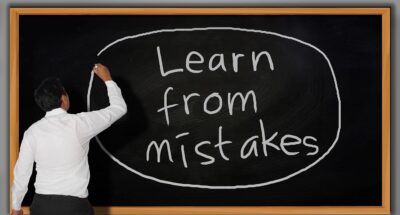
Exemplars Who Inspire Intellectual Humility
Students learn about intellectual humility, consider an historian who demonstrated it, and identify ways to practice greater intellectual humility.

Students learn about intellectual humility, consider an historian who demonstrated it, and identify ways to practice greater intellectual humility.
“I am a historian. With the exception of being a wife and mother, it is who I am. And there is nothing I take more seriously … [N]ot long after the publication of my book The Fitzgeralds and the Kennedys, I received a communication from author Lynne McTaggart pointing out that material from her book on Kathleen Kennedy had not been properly attributed. I realized she was right. Though my footnotes repeatedly cited Ms. McTaggart’s work, I failed to provide quotation marks for phrases that I had taken verbatim, having assumed that these phrases, drawn from my notes, were my words, not hers. I made the corrected changes … What made the incident particularly hard for me was the fact that I take great pride in the depth of my research and the extensiveness of my citations. The writing of history is a rich process of building on the work of the past with the hope that others will build on what you have done. Through footnotes you point the way to the future historians. The only protection as a historian is to institute a process of research and writing that minimizes the possibility of error. And that I have tried to do, aided by modern technology, which enables me, having long since moved beyond longhand, to use a computer for both organizing and taking notes. I now rely on a scanner, which reproduces the passages I want to cite, and then I keep my own comments on those books in a separate file so that I will never confuse the two again.… Still, there is no guarantee against error. Should one occur, all I can do, as I did 14 years ago, is to correct it as soon as I possibly can, for my own sake and the sake of history.”
Cultivating Good Minds: A Philosophical & Practical Guide to Educating for Intellectual Virtues by Jason Baehr, Ph.D.
Philosophers have long endorsed the use of moral exemplars to promote moral character development, and a recent review of best practices for school-based moral education also highlights the benefit of using stories of moral exemplars to encourage moral character.
Research shows that stories of extraordinary morality can encourage moral sentiments and motivate individuals to engage in similar behaviors. However, not all moral exemplars have the same impact. A study found that stories of relevant and attainable moral exemplars, such as peers, were more effective at encouraging college and middle school students to behave similarly when compared to stories of historical moral characters.
Admitting to mistakes and recognizing one’s gaps in understanding can be difficult at times, particularly, in our performance-obsessed culture. For students, such pressures to perform can hinder their learning process. Intellectual humility can help students distance themselves from pure performance goals so that they are better able to focus on intellectual growth. Intellectual humility can help create more welcoming learning environments where students feel safe to ask questions and take more ownership for their learning.

Are you ready to build a kinder, happier school where everyone belongs? Join Greater Good Educators! Explore the science of well-being in a supportive community of educators from around the world. Registration is now open for the 2025-2026 school year!
Comments